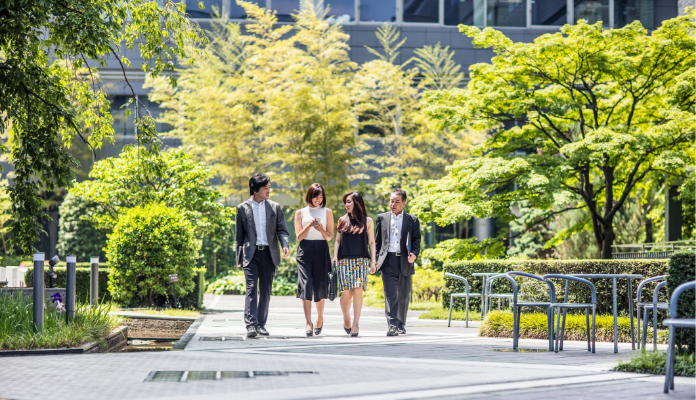In Japan's renewable energy sector, navigating the intricacies of compensation trends, hiring practices, and candidate acquisition strategies is crucial for organizations aiming to secure top talent and drive industry growth. In our recent industry webinar, our talent consultants delved into the multifaceted landscape of renewable energy talent acquisition in Japan, offering insights into compensation trends, hiring processes, and actionable strategies for securing the best candidates. In this blog, we've summarized their key advice.
Compensation Trends:
One of the fundamental pillars of attracting and retaining talent in the renewable energy sector is a competitive compensation package. While historically, sectors like oil and gas have offered higher pay scales, the landscape is shifting as renewable energy gains prominence. Multinational companies and international firms typically offer more competitive compensation than their Japanese counterparts. However, the tide is turning as subsidies and investments flow into renewable energy technologies, leading to a more balanced compensation structure across the sector.
| Download the Japan Renewable Energy Salary Guides |
Beyond monetary benefits, candidates in Japan's renewable energy sector are increasingly valuing non-monetary perks. These include retirement allowances, stock benefits, housing allowances, healthcare benefits, and support for work-life balance initiatives. The evolving preferences of candidates underscore the importance for hiring managers to tailor compensation packages that align with the needs and expectations of prospective employees, fostering a mutually beneficial employer-employee relationship that results in better talent retention.
| Read more about non-monetary benefits that renewable energy professionals in Japan value the most |
Securing Candidates:
In a competitive hiring landscape, securing candidates often requires a strategic approach that goes beyond traditional recruitment methods. Here are some actionable strategies:
Flexibility and Open-mindedness
Given the limited talent pool in Japan's renewable energy sector, organizations must remain flexible and open-minded when evaluating candidates. Transferable skills and a willingness to learn can outweigh specific industry experience, enabling companies to widen their search.
Clear Communication and Transparency
Clearly communicating the benefits, career prospects, and organizational culture during the recruitment process ensures transparency and builds trust with candidates. Open communication helps manage expectations and aligns candidate aspirations with company objectives, laying the foundation for successful long-term partnerships.
Partnership with Recruitment Agencies
Leveraging the expertise of talent partners can streamline your talent hiring process, as well as provide access to a broader network of candidates and specialized industry insights. Collaborating with talent partners aligned with your organization's goals increases the likelihood of identifying and securing top talent that meets your exact requirements.
Hiring Practices:
A smooth and streamlined hiring process is paramount to securing top talent in Japan's competitive renewable energy market. While each company may have its unique hiring practices, there are overarching principles that can enhance the efficiency and efficacy of the recruitment process.
Typically, the hiring process comprises three main stages:
Human Resource Interview
This initial stage involves HR managers or specialists providing candidates with insights into the company's culture, structure, benefits, and job scope. It sets the foundation for prospective employees to gauge their alignment with the organization's ethos and values.
Hiring Manager Interview
In the second round, candidates engage with hiring managers who delve deeper into the technical aspects of the role, discussing responsibilities, expectations, and project details. This phase allows candidates to gain a comprehensive understanding of the job requirements and assess their suitability for the position.
Offer Chat or Stakeholder Interview
The final stage involves extending an offer to selected candidates or conducting additional interviews with key stakeholders, such as executives or department heads. This ensures alignment between the candidate's aspirations and the company's objectives, facilitating informed decision-making on both sides.
We recommend a timeframe of one month to complete all stages. Timely decision-making signals commitment and professionalism to candidates, increasing the likelihood of securing top talent before they explore other opportunities.
Staying on top of compensation trends, hiring practices, and candidate acquisition strategies is integral to success in Japan's renewable energy industry. By understanding the evolving preferences of candidates, optimizing hiring processes, and working with specialized talent acquisition partners, organizations can position themselves as employers of choice to the right people, driving industry innovation and growth.
|
